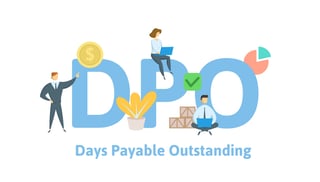
Today, it’s vital for an accounting department to implement a document management and automated workflow system. These organisations either lack a digital system or don’t use their document management solution to its full potential.
Seven common challenges that digital document management addresses
- Missing out on early payment discounts: Vendors often offer discounts for early payments (or additional charges for late payments, which amounts to the same thing). Slow, inefficient invoice processing makes it difficult to keep track of these discounts and meet their deadlines. A document
 management solution enables you to put workflows and automatic notifications in place that help you prioritise payments and capture these discounts.
management solution enables you to put workflows and automatic notifications in place that help you prioritise payments and capture these discounts. - Relying on manual data entry: If you’re using paper-based processes or a poorly integrated accounting system, your employees spend a large proportion of their time on manual data entry which is expensive and increases the potential for human error.Integrating your accounting software and your document management system reduces the need for manual data entry. For example, if you already have invoice and purchase order data in your accounting line-of-business software, there’s no need to retype it in your document management system. You will be able to integrate the systems and automatically share the relevant information. Your organisation can also use a solution involving intelligent indexing for invoice processing. It uses machine learning technology to remember each document and your indexing corrections, so every capture increases the speed, accuracy and reliability of the tool.
- Undefined or undocumented business processes: In many accounting departments, some processes only exist in the heads of certain employees. This makes your department reliant on specific people. It’s difficult to ensure that correct processes are always followed.
 When you set up processes and workflows in a digital document management system, the correct process is followed automatically. Through audit trails and tracking activities such as approvals, you ensure that invoices and other process-dependent documents go through prescribed business best practices.
When you set up processes and workflows in a digital document management system, the correct process is followed automatically. Through audit trails and tracking activities such as approvals, you ensure that invoices and other process-dependent documents go through prescribed business best practices. - Low visibility into accounts payable processes: If you don’t know when invoices are due, it’s difficult to predict your cash flow needs. But when you use a central repository to store all your accounting documents, and customer and vendor communication, you can use tools within your document management solution to enable transparency.
- Not preparing for audits: In the event of an audit, you don’t want your accounting team to spend weeks or months compiling and organising your files. In a paper-based system, employees pull individual files and documents from a filing cabinet and make photocopies. An electronic document management system helps save enormous amounts of time in this regard. Your documents are organised in a secure system that makes it easy to quickly export or share the right files with auditors.
- No disaster recovery plan: If you’re storing your accounting documents on paper in one place, you’re risking irrevocable loss in the event of natural and other disasters. With an automated system for financial records management, it’s simple and inexpensive to store redundant copies of important business information in separate locations. If you opt for a cloud-based system, the process is even simpler. Your solution provider is responsible for creating secure system backups.
- Thinking that a document management and automated workflow solution isn’t in your budget: Implementing a document management solution makes a huge difference in your accounting department’s efficiency, resulting in a substantial return on investment.According to research by the Aberdeen Group, the most efficient organisations can process an average invoice within a day at a cost of $3.34. As a result, they’re able to capture 90 percent of available early payment discounts, realising significant savings. The average organisation spends much more per invoice ($6.29) and captures only 47 percent of these discounts. If you’re one of these companies, increasing efficiency with document management could cut your invoice processing time and costs in half.
In the end, digital document management offers your accounting team several advantages. On a fundamental level, it improves the efficiency of business processes through workflow automation and robust search tools. Document management also helps you prepare for audits and maintain compliance through security measures and audit trails that prove who has accessed and approved documents.